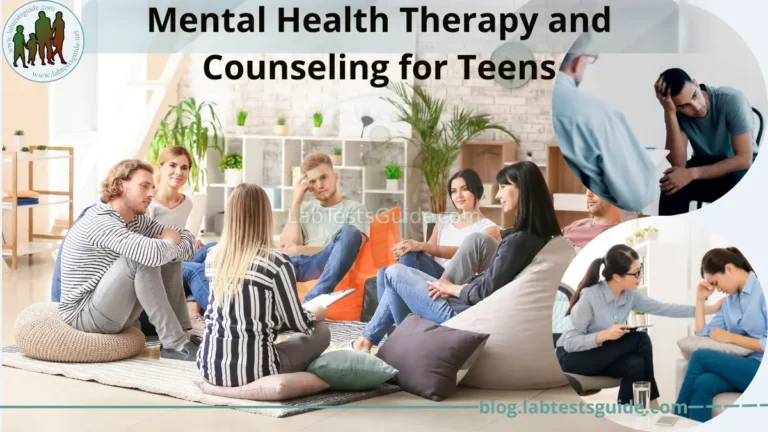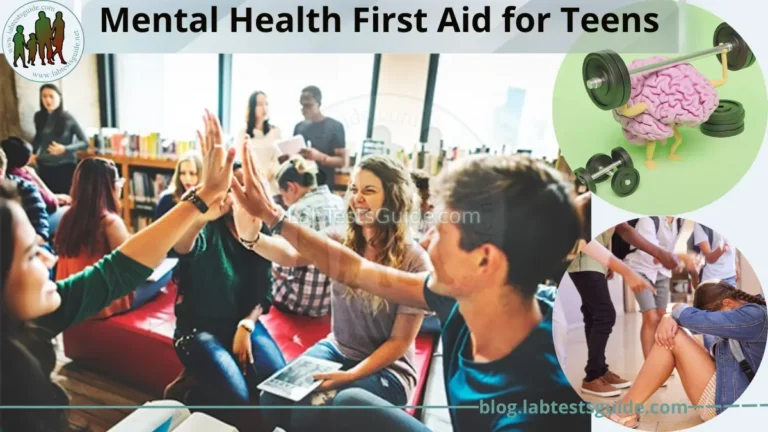Reproductive health and education play a crucial role in the well-being and development of teenagers. Adolescence is a period of significant physical, emotional, and social changes, and providing comprehensive information and support in the realm of reproductive health is essential for teens to make informed decisions, maintain their health, and establish healthy relationships.

Importance of Reproductive Health Education for Teens:
Reproductive health education equips teenagers with the knowledge and skills necessary to navigate various aspects of their sexual and reproductive well-being. It helps them understand their bodies, learn about safe sex practices, contraception, sexually transmitted infections (STIs), consent, healthy relationships, and pregnancy options. By promoting responsible behavior and informed decision-making, reproductive health education empowers teenagers to protect themselves, prevent unintended pregnancies, and maintain their physical and emotional well-being.
Objectives of the Guide:
The objective of this guide is to provide a comprehensive resource on reproductive health and education for teens. It aims to address the specific needs and concerns of teenagers by covering topics such as comprehensive sexuality education (CSE), access to reproductive health services, contraception and safe sex practices, prevention of STIs, emotional and mental well-being, consent and healthy relationships, pregnancy options, legal and ethical considerations, parental involvement, and community support. The guide strives to promote evidence-based information, dispel myths and misconceptions, and foster a supportive environment for teens to make informed choices about their reproductive health.
It is important to note that while this guide provides valuable information, it should not replace professional medical advice. Teens are encouraged to consult healthcare providers or trusted professionals for personalized guidance and support regarding their reproductive health needs.
Understanding Reproductive Health:
Definition of Reproductive Health:
Reproductive health refers to the state of physical, mental, and social well-being related to the reproductive system and its functions throughout a person’s life. It encompasses a broad range of issues, including sexual health, fertility, contraception, pregnancy, childbirth, and the prevention and treatment of reproductive disorders and diseases. Reproductive health also involves the right to make informed decisions about one’s reproductive life, free from discrimination, coercion, and violence.
Key Components of Reproductive Health
Reproductive health comprises several key components that contribute to overall well-being:
- Sexual Health: Sexual health encompasses the physical, emotional, mental, and social aspects of sexuality. It involves understanding and respecting one’s own body, developing positive body image, experiencing sexual pleasure safely and consensually, and engaging in healthy and respectful relationships.
- Family Planning: Family planning involves the ability of individuals and couples to decide if, when, and how many children to have. It includes access to a range of safe and effective contraceptive methods, as well as information and services to support informed decision-making.
- Prevention and Treatment of STIs: Reproductive health includes measures to prevent and manage sexually transmitted infections (STIs). This involves promoting awareness, encouraging safe sex practices, providing access to testing and treatment, and addressing the stigma associated with STIs.
- Safe Pregnancy and Childbirth: Ensuring safe and healthy pregnancies and childbirth is a fundamental aspect of reproductive health. It involves adequate prenatal care, skilled attendance at delivery, access to emergency obstetric care, and postnatal support for both the mother and child.
- Reproductive Rights: Reproductive health includes recognizing and upholding the rights of individuals to make decisions regarding their reproductive lives. This includes the right to access information, services, and resources related to reproductive health, as well as the right to be free from discrimination, coercion, and violence.
Challenges and Issues Faced by Teens in Reproductive Health:
Teenagers face unique challenges and issues in relation to their reproductive health:
- Lack of Knowledge: Many teens lack comprehensive and accurate information about their reproductive health. This knowledge gap can lead to misinformation, risky behaviors, and negative health outcomes.
- Unintended Pregnancies: Teenagers are at a higher risk of unintended pregnancies due to factors such as limited access to contraception, inadequate sex education, and societal stigma surrounding sexuality.
- STIs and HIV/AIDS: Teens are susceptible to sexually transmitted infections, including HIV/AIDS. Lack of awareness, inconsistent condom use, and early sexual debut contribute to the increased risk of STIs among adolescents.
- Emotional Well-being: Adolescence is a period of emotional and psychological development. Issues such as body image concerns, self-esteem, peer pressure, and relationship dynamics can impact teens’ emotional well-being and their ability to make informed choices about their reproductive health.
- Societal Attitudes and Stigma: Societal attitudes and stigma surrounding adolescent sexuality can create barriers to accessing reproductive health services, seeking support, and receiving accurate information.
Addressing these challenges and providing comprehensive reproductive health education and services tailored to teenagers are crucial in promoting their well-being, reducing health disparities, and empowering them to make informed decisions about their reproductive lives.
Comprehensive Sexuality Education (CSE):
What is Comprehensive Sexuality Education? Comprehensive Sexuality Education (CSE) is a rights-based approach to sexuality education that provides age-appropriate, accurate, and evidence-based information about human sexuality. It goes beyond the biological aspects of reproduction and encompasses a broad range of topics, including relationships, gender equality, sexual health, sexual rights, consent, and responsible decision-making. CSE aims to empower individuals to develop healthy attitudes and values, make informed choices, and maintain their sexual and reproductive well-being throughout their lives.
Benefits of Comprehensive Sexuality Education:
Comprehensive Sexuality Education offers several benefits for teenagers.
- Knowledge and Awareness: CSE equips teens with accurate information about their bodies, reproductive health, contraception, STIs, and healthy relationships. It helps dispel myths, promotes understanding, and improves awareness of sexual and reproductive health issues.
- Safer Sexual Behavior: CSE promotes the adoption of safe and responsible sexual behaviors. It educates teens about the importance of using contraception consistently and correctly, practicing safe sex, and preventing STIs. By providing information about consent, CSE also helps reduce the risk of sexual coercion and violence.
- Improved Decision-making: CSE empowers teens to make informed decisions about their sexual and reproductive lives. It encourages critical thinking, teaches problem-solving skills, and fosters the ability to assess risks and benefits. Teens are better equipped to navigate relationships, set boundaries, and negotiate safer sex practices.
- Healthy Relationships and Communication: CSE emphasizes the importance of healthy relationships based on mutual respect, equality, and consent. It helps teenagers understand the dynamics of relationships, promote effective communication, and recognize and address issues like peer pressure, dating violence, and abuse.
- Gender Equality and Sexual Rights: CSE promotes gender equality, challenging gender stereotypes and norms. It educates teens about sexual rights, including the right to consent, bodily autonomy, and the right to access comprehensive sexual and reproductive health services without discrimination.
Curriculum Components of Comprehensive Sexuality Education:
Comprehensive Sexuality Education curriculum typically includes the following components.
- Anatomy and Physiology: Education about the structure and functions of the reproductive system, including menstruation, fertilization, and pregnancy.
- Relationships and Communication: Teaching healthy relationship dynamics, effective communication skills, and promoting respectful and consensual interactions.
- Sexual and Reproductive Health: Providing accurate information about contraception, STIs, HIV/AIDS, pregnancy prevention, and safe sexual practices.
- Gender and Sexual Identity: Addressing gender stereotypes, promoting understanding of diverse sexual orientations and gender identities, and combating discrimination and homophobia.
- Consent and Boundaries: Educating teens about the importance of consent, understanding boundaries, and preventing sexual coercion and harassment.
- Decision-making and Critical Thinking: Teaching skills for responsible decision-making, assessing risks and consequences, and building critical thinking abilities related to sexual and reproductive health choices.
Overcoming Barriers to Implementing CSE in Schools:
Implementing Comprehensive Sexuality Education in schools may face some challenges. These can include resistance from conservative groups, cultural and religious sensitivities, and inadequate teacher training. To overcome these barriers, it is crucial to.
- Advocate for CSE: Engage in advocacy efforts to raise awareness about the importance of CSE and address misconceptions. Highlight the evidence-based benefits of CSE in improving adolescent sexual and reproductive health outcomes.
- Involve Stakeholders: Engage parents, teachers, school administrators, and community leaders in discussions and decision-making processes regarding CSE implementation. Address concerns, provide accurate information, and seek their support.
- Teacher Training: Provide comprehensive and ongoing training for teachers to ensure they have the knowledge, skills, and confidence
Preventing Sexually Transmitted Infections (STIs):
Common STIs among Teens:
Sexually transmitted infections (STIs) are infections that are transmitted through sexual contact, including vaginal, anal, or oral sex. Common STIs among teens include:
- Chlamydia: A bacterial infection that can affect the reproductive organs, leading to complications if left untreated.
- Gonorrhea: Another bacterial infection that can cause inflammation in the genital tract, rectum, or throat.
- Human Papillomavirus (HPV): A viral infection that can lead to genital warts and an increased risk of certain cancers.
- Herpes: A viral infection characterized by sores or blisters on or around the genitals or mouth.
- HIV/AIDS: Human Immunodeficiency Virus (HIV) is a virus that attacks the immune system, leading to Acquired Immunodeficiency Syndrome (AIDS).
Transmission and Prevention of STIs :
STIs can be transmitted through various modes, including unprotected sexual intercourse, oral-genital contact, sharing contaminated needles, and mother-to-child transmission during childbirth or breastfeeding. To prevent STIs among teens, the following measures are crucial:
- Abstinence: Abstinence from sexual activity is the most effective way to prevent STIs.
- Condom Use: Consistent and correct use of latex or polyurethane condoms during sexual activity can significantly reduce the risk of STI transmission. It is important to use condoms for vaginal, anal, and oral sex.
- Vaccination: Vaccines, such as the HPV vaccine, can protect against certain types of STIs. Vaccination is recommended for both males and females, ideally before becoming sexually active.
- Limiting Sexual Partners: Limiting the number of sexual partners reduces the risk of exposure to STIs. Engaging in monogamous relationships with partners who have been tested and are known to be STI-free also lowers the risk.
- Regular Testing: Regular STI testing is essential, especially for sexually active teens. It helps detect infections early and facilitates timely treatment. Testing can be done at healthcare facilities or through home test kits, depending on availability and local regulations.
Importance of Regular STI Testing
Regular STI testing is crucial for teenagers, even if they do not have symptoms. The importance of regular testing includes:
- Early Detection and Treatment: Many STIs may not cause noticeable symptoms initially. Regular testing helps identify infections early, enabling prompt treatment and reducing the risk of complications.
- Preventing Transmission: Knowing one’s STI status allows individuals to take necessary precautions to prevent transmitting infections to sexual partners.
- Peace of Mind: Regular testing provides peace of mind and reassurance about one’s sexual health status.
- Health Maintenance: Routine STI testing is part of proactive healthcare maintenance for sexually active individuals. It allows for a comprehensive evaluation of reproductive health and the prevention of potential long-term consequences
Promoting STI Awareness and Safe Practices:
Promoting STI awareness and safe practices among teens is crucial for reducing the prevalence of STIs. Key strategies include:
- Comprehensive Sexuality Education: Comprehensive sexuality education provides accurate information about STIs, their transmission, prevention methods, and the importance of regular testing. It also addresses myths and misconceptions surrounding STIs.
- Condom Distribution: Ensuring easy access to condoms in schools, healthcare facilities, and community settings promotes their use as a protective measure against STIs.
- Peer Education: Peer education programs involve training and empowering young people to educate their peers about STIs, safe sex practices, and the importance of regular testing. Peer educators can create a safe and supportive environment for discussions related to sexual health.
- Collaboration with Healthcare Providers
Emotional and Mental Well-being:
Importance of Emotional and Mental Well-being for Teens
Emotional and mental well-being are essential aspects of overall health for teenagers. Adolescence is a period of significant emotional and psychological development, and promoting positive mental health can have a profound impact on their overall well-being. Key reasons why emotional and mental well-being is important for teens include:
- Self-esteem and Self-confidence: Emotional and mental well-being contribute to the development of a positive self-image, self-esteem, and self-confidence. This, in turn, helps teenagers navigate challenges, build resilience, and maintain healthy relationships.
- Academic Performance: Emotional and mental well-being positively influences academic performance, as it enhances concentration, learning abilities, and problem-solving skills. It reduces stress levels and promotes better cognitive functioning.
- Healthy Relationships: Emotional and mental well-being enables teenagers to form and maintain healthy relationships. It facilitates effective communication, empathy, and understanding, leading to stronger connections with peers, friends, and family members.
- Coping with Stress and Challenges: Adolescence can be a period of increased stress and various challenges. Good emotional and mental well-being equips teenagers with coping strategies, resilience, and the ability to manage stress effectively.
- Prevention of Mental Health Disorders: Promoting emotional and mental well-being plays a crucial role in preventing the onset of mental health disorders in adolescence and later stages of life.
Factors Affecting Emotional and Mental Well-being:
Several factors can influence the emotional and mental well-being of teenagers.
- Peer Pressure: The influence of peers can impact a teenager’s emotional and mental well-being. Positive peer relationships can provide support, while negative peer pressure can lead to stress and risky behaviors.
- Family Environment: The family environment significantly affects emotional and mental well-being. Supportive and nurturing family relationships contribute to positive mental health, while conflict, neglect, or abuse can have adverse effects.
- Academic Pressure: High academic expectations, competition, and the pressure to succeed academically can contribute to stress and anxiety among teenagers.
- Social Media and Online Presence: The use of social media and online platforms can impact emotional and mental well-being. Negative experiences like cyberbullying, comparison, and excessive screen time can affect self-esteem and mental health.
- Hormonal Changes: Hormonal changes during adolescence can influence emotional well-being, leading to mood swings and emotional vulnerability.
Promoting Emotional and Mental Well-being:
Promoting emotional and mental well-being among teenagers involves several strategies.
- Comprehensive Supportive Environment: Creating a supportive environment at home, school, and within the community is crucial. This includes fostering open communication, promoting empathy, and providing opportunities for teenagers to express themselves.
- Building Resilience and Coping Skills: Encouraging the development of resilience and coping skills helps teenagers effectively navigate stress and challenges. This can involve teaching problem-solving techniques, promoting healthy coping mechanisms, and providing access to counseling and support services.
- Emotional Regulation: Supporting teenagers in developing emotional regulation skills helps them manage and express their emotions in a healthy and constructive manner.
- Balanced Lifestyle: Encouraging a balanced lifestyle that includes regular physical activity, sufficient sleep, healthy eating habits, and leisure activities helps maintain emotional and mental well-being.
- Education and Awareness: Providing education and awareness about mental health, stress management, and seeking help for mental health concerns reduces stigma and promotes early intervention.
- Access to Mental Health Support: Ensuring access to mental health support services, such as school counselors, therapists, and helplines, is vital for teenagers who may require professional assistance.
Promoting emotional and mental well-being among teens requires a collaborative effort involving parents, educators, healthcare professionals, and the broader community. By prioritizing emotional and
Legal and Ethical Considerations:
Legal Considerations for Reproductive Health and Education for Teens:
When it comes to reproductive health and education for teens, several legal considerations come into play. These considerations may vary across countries or regions, but some common legal aspects include.
- Age of Consent: Laws determine the age of consent for sexual activity, which determines when individuals can legally engage in sexual relationships. It is important to adhere to these laws to ensure the protection of minors and prevent any legal implications.
- Confidentiality and Privacy: Laws and regulations govern the confidentiality and privacy of reproductive health services for teenagers. Healthcare providers are often required to maintain confidentiality unless there is a risk to the individual’s safety or the law mandates reporting certain situations, such as cases of abuse or statutory rape.
- Access to Reproductive Health Services: Laws may dictate the accessibility of reproductive health services for teenagers, including contraception, STI testing and treatment, pregnancy options, and counseling. Some jurisdictions require parental consent, while others have provisions for confidential services for minors.
- Comprehensive Sexuality Education: Laws and education policies determine whether comprehensive sexuality education is included in school curricula and the scope and content of the curriculum. Legal frameworks can influence the implementation and delivery of comprehensive sexuality education.
Ethical Considerations for Reproductive Health and Education for Teens:
In addition to legal considerations, there are ethical considerations that should guide reproductive health and education for teens. These considerations include.
- Autonomy and Informed Consent: Respecting the autonomy and informed decision-making of teenagers is crucial. It is important to provide them with accurate and age-appropriate information and involve them in decisions about their own reproductive health.
- Non-judgmental and Non-discriminatory Approach: Reproductive health services and education should be provided in a non-judgmental and non-discriminatory manner, ensuring that all teenagers, regardless of their sexual orientation, gender identity, or socio-economic background, receive equitable and respectful care.
- Beneficence and Non-maleficence: Healthcare providers and educators should prioritize the well-being and best interests of teenagers, ensuring that the information and services provided promote their health, safety, and overall welfare. Any potential harm should be minimized.
- Cultural Sensitivity: Recognizing and respecting cultural diversity is important when providing reproductive health services and education. Cultural beliefs, norms, and values should be taken into consideration, while ensuring that individuals’ rights and well-being are not compromised.
- Comprehensive and Evidence-based Information: Reproductive health education should be based on accurate, up-to-date, and evidence-based information. Providing comprehensive information ensures that teenagers have the knowledge they need to make informed decisions about their sexual and reproductive health.
- Safeguarding Vulnerable Teens: It is essential to identify and address the needs of vulnerable teenagers, including those experiencing abuse, exploitation, or marginalization. Taking appropriate measures to safeguard their well-being and provide them with necessary support is an ethical imperative.
Ethical considerations aim to ensure that reproductive health and education for teens are provided in a manner that respects their rights, autonomy, and well-being while upholding professional standards and legal obligations.
Engaging Parents and Guardians:
Engaging parents and guardians is crucial when it comes to reproductive health and education for teens. Parents play a significant role in supporting and guiding their teenagers through this important aspect of their lives. Here are some strategies for effectively engaging parents and guardians.
Communication and Education:
Parent Workshops: Organize workshops or informational sessions for parents to educate them about adolescent reproductive health, common concerns, and available resources. These workshops can provide a platform for parents to ask questions, share experiences, and learn from experts.- Newsletters or Parent Portals: Use newsletters or online platforms to share updates, resources, and educational materials related to reproductive health. This keeps parents informed and engaged in their teenagers’ sexual and reproductive well-being.
- Parent-Teacher Meetings: Include discussions about reproductive health and education during parent-teacher meetings to address any concerns, provide updates on curriculum, and share information about available support services.
- Online Resources: Provide access to reliable online resources and websites that offer information and guidance for parents on how to support their teenagers’ reproductive health.
Open Communication and Support
Encourage Dialogue: Encourage parents to have open and non-judgmental conversations with their teenagers about reproductive health. Promote a supportive environment where teenagers feel comfortable discussing their questions, concerns, and experiences.- Parent-Teen Workshops: Conduct joint workshops or sessions for parents and teenagers to facilitate communication and understanding. These sessions can cover topics like effective communication, consent, healthy relationships, and responsible sexual behavior.
- Resources for Parents: Provide parents with age-appropriate materials and resources that offer guidance on discussing reproductive health topics with their teenagers. These resources can include books, pamphlets, and online materials.
- Support Groups: Establish support groups or forums where parents can connect with one another, share experiences, and seek advice from professionals or experienced parents. This creates a sense of community and support for parents navigating the challenges of supporting their teenagers’ reproductive health.
Collaboration and Partnership:
School-Parent Collaboration: Foster collaboration between schools and parents to ensure a comprehensive approach to reproductive health education. Involve parents in the development of curriculum, workshops, and policies related to reproductive health and education.- Parent Advisory Committees: Establish parent advisory committees that provide input, feedback, and recommendations on reproductive health programs and initiatives. These committees can help shape the content, delivery, and evaluation of reproductive health education.
- Community Partnerships: Engage community organizations, healthcare providers, and local resources to support parents in accessing additional information, services, and support for their teenagers’ reproductive health.
- Professional Development: Offer professional development opportunities for teachers and school staff to enhance their knowledge and skills in engaging parents and addressing reproductive health topics. This enables educators to better support parents and effectively deliver comprehensive sexuality education.
Engaging parents and guardians in reproductive health and education for teens helps create a collaborative and supportive environment that addresses the needs of teenagers holistically. By fostering open communication, providing resources, and promoting partnerships, parents can be valuable allies in promoting the sexual and reproductive well-being of their teenagers.
Conclusion:
Reproductive health and education for teens are crucial aspects of their overall well-being. By understanding reproductive health, comprehensive sexuality education, access to reproductive health services, prevention of sexually transmitted infections, promoting emotional and mental well-being, and considering legal and ethical aspects, we can ensure that teenagers receive the necessary support, guidance, and resources to make informed decisions about their sexual and reproductive health.
Comprehensive sexuality education equips teenagers with accurate information, promotes healthy attitudes and behaviors, and empowers them to make responsible choices. Access to reproductive health services ensures that teenagers can receive preventive care, contraception, STI testing and treatment, and pregnancy options and counseling. Preventing STIs through education, safe practices, and regular testing reduces the burden of infections among teenagers. Promoting emotional and mental well-being helps teenagers develop resilience, cope with stress, and maintain healthy relationships.
Legal and ethical considerations guide the provision of reproductive health and education for teens, ensuring that their rights, autonomy, and privacy are respected. Engaging parents and guardians is vital, as they play a significant role in supporting teenagers’ reproductive health. By promoting open communication, providing education, and fostering collaboration, parents can actively contribute to their teenagers’ well-being.
Overall, a comprehensive approach that addresses the physical, emotional, and social aspects of reproductive health and education is essential in supporting teenagers’ sexual and reproductive well-being. By prioritizing these aspects, we can empower teenagers to make informed decisions, promote their overall health, and contribute to a healthier and more informed society.






